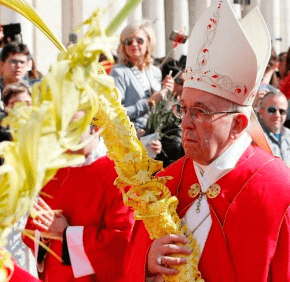Catholic News Service

Members of the Swiss Guard stand at attention as Pope Francis passes by during Palm Sunday Mass March 20 in St. Peter’s Square. (CNS photo/Paul Haring)
Pilgrims brave cold, rain to “Walk in Mercy”
Author gives strong, clear portrait of U.S. priest killed in Guatemala


